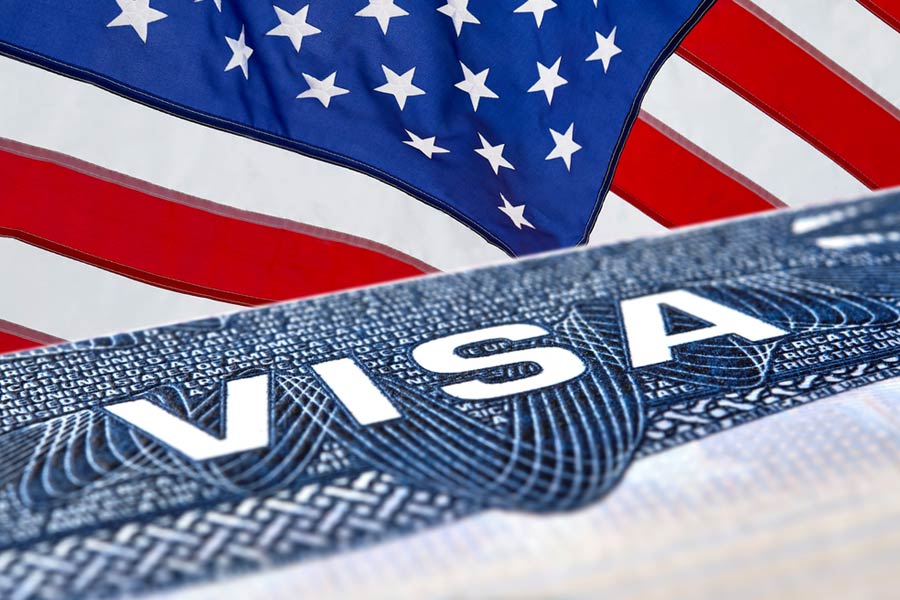US authorities on Sunday clarified that the enhanced H-1B visa fee would apply only to fresh applications, filed on or after September 21 for next year’s visa
lottery cycle.
They also made it clear that the new $100,000 application fee, up from about $3,000, was not an annual fee but a one-time payment granting six years’ validity for the H-1B visa. Nor would the enhanced fee be charged for visa renewals. (See chart)
A misconception about the $100,000 fee being an annual affair had triggered panic on Saturday immediately after President Donald Trump issued his proclamation. It fuelled fears about large numbers of Indians — who make up 70 per cent of H-1B visa holders — having to return home.
On Sunday, the White House cleared up another confusion, explaining that those H-1B visa holders who were currently abroad would not, after the Saturday
midnight deadline, have to pay the enhanced fee to be able to re-enter the US.
The misunderstanding had on Saturday led many Indian H-1B visa holders, nudged by their American employers, to cut short their visits home and buy air tickets back to the US at exorbitant prices.
US secretary of commerce Howard Lutnick had told reporters on Saturday that the enhanced visa fee would be charged every year during the six-year validity period.
“The company needs to decide: Do they want… is that person valuable enough to have $100,000 a year payment to the government or they should head home and they should go hire an American? The whole idea, it’s annual,” he had told reporters in the presence of Trump.
“So, $100,000 a year. So either the person is very valuable to the company and America, or they are going to depart and the company is going to hire an American.”
On Sunday, the government issued a fact sheet clarifying the new norms.
In a post on X, White House press secretary Karoline Leavitt said: “To be clear: 1.) This is NOT an annual fee. It’s a one-time fee that applies only to the petition.
“2.) Those who already hold H-1B visas and are currently outside of the country right now will NOT be charged $100,000 to re-enter. H-1B visa holders can leave and re-enter the country to the same extent as they normally would....
“3.) This applies only to new visas, not renewals, and not current visa holders. It will first apply in the next upcoming lottery cycle.”
An H-1B visa is valid for up to three years initially, after which it can be renewed for another three years against a nominal charge.
Till now, the employer filed the H-1B petition (application) on the employee’s behalf and paid a fee of around $3,000. During the renewal, the employer paid another $460.
A US Citizenship and Immigration Services memorandum said the enhanced H-1B visa fees would not apply to petitions filed before Sunday.
An Atlanta-based Indian IT worker said the clarification had been a great relief.
“The proclamation was not very clear. The authorities gave an impression that it would apply to existing visa holders, with their employers having to file H-1B visa petitions every year,” he said.
The other misunderstanding, about the re-entry of H-1B visa holders, had “led to employers asking workers who were abroad to return before the enhanced fee kicked in. Many Indians who had boarded flights to visit India got off the flights after receiving messages from their companies.”
The techie said the issuance of new H-1B visas would now be negligible. However, the Indians currently working in the US will complete their six-year period, and in the meantime their employers will be initiating the process for a Green Card for them.
“While the Green Card process is on, these workers are allowed to stay and work in the US. So nothing changes for the existing (H-1B) workers,” the techie said.
Since the demand far outstrips the yearly cap on the issuance of H-1B visas, the US government conducts a lottery to select applicants and scrutinises their documents.
The annual cap is 65,000 under the regular category, while an additional 20,000 visas are allowed for applicants with advanced degrees from US institutions.











